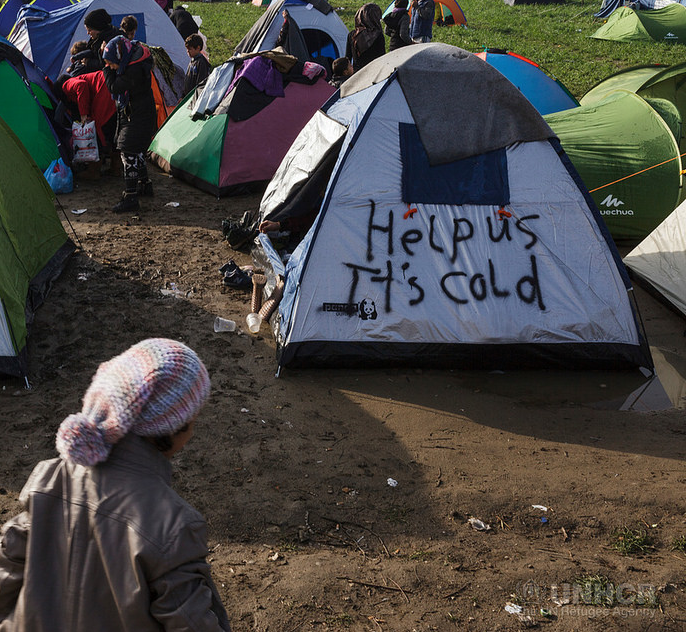How to keep your humanitarian principles when all around are losing theirs

The lights are dimming across the humanitarian space as more and more governments choose to ignore or disavow the humanitarian rules promulgated in more enlightened times. Shoring up a system under existential threat is now a priority for everyone toiling in the humanitarian trenches. What is to be done? Some thoughts on a burning issue…
Political leaders pandering to populist pressures are ubiquitous, egging people on to repel boarders and remove the welcome mat from earlier arrivals. Disrespect for many of the precepts of the international humanitarian architecture is now the rule rather than the exception. The supply of compassion, meanwhile, is diminishing in face of growing demand for aid and protection from millions of people forced to flee by conflict, hardship and environmental pressure.
It was not ever thus. Years ago, when I first saw the logo of the UN High Commissioner for Refugees on the gates of the Office’s Geneva headquarters, I felt elated by my proximity to what struck me as the institutional manifestation of international compassion. Youthful naiveté? Call it what you will, but at the time respect for refugee law, while not taken for granted, was an important element in the ‘never again’ approach to international affairs that emerged in the wake of two world wars.
Today, Europe is closing its borders in response to populist demagoguery. In Lebanon, deterrence is the watchword, with Syrian refugees disqualified from laying down all but the shallowest roots. Kenya, meanwhile, edges closer to acting on its threat to close the refugee camp at Dadaab, which houses 350,000 people, mostly from Somalia. These are not isolated cases, but reflect an increasingly accepted orthodoxy.
As the war on terror stokes public fears and is used to justify rolling back the application of humanitarian law and respect for human rights, humanitarian programs are swimming against the tide to ease the plight of people forced or spurred to move by a wide range of intersecting pressures. Conditions in some places come close to collective punishment as unwanted refugees and ‘migrants’ are corralled into miserable detention centres, forced to run the gauntlet of people traffickers and, when they get closer to safety, stranded in overcrowded camps, out of sight and out of mind.
As so many politicians turn their backs on today’s human cargo, it’s up to humanitarian organizations and fellow-travelers in the donor community to act on every syllable of the words humanity, independence, neutrality and impartiality that describe the humanitarian proposition. Those four words must become a call to action, not a hollow mantra, if we are to resist the fast and sometimes furious dissolution of the principles that gave us our mandates in the first place.
New instruments and frameworks provide welcome additional tools to keep the embers of humanitarian convention alight. Take the Core Humanitarian Standard (CHS), which lays out concisely what good humanitarian practice looks like. Let us make it the touchstone of our work, as we hold ourselves accountable for ensuring people receive timely and relevant aid while also giving them a say in the way aid programs are designed and a chance to play a part in their deliverance from evil and adversity.
The Grand Bargain provides additional leverage. Agreed at the World Humanitarian Summit in May 2016, the bargain calls for greater transparency and effectiveness in the way aid is provided, notably by giving affected people a louder voice through what it calls a ‘participation revolution” and shifting from aid in kind to cash support. It also prescribes a bigger role for local aid providers and lighter reporting requirements to free up staff to get on with more important tasks.
Now is the time to reaffirm our commitment to both the underlying principles and modern practice of humanitarian action encapsulated in the CHS and the Grand Bargain. We need to live up to expectations, our own and those we serve, rather than allowing regressive populists and their authoritarian accomplices to determine the way we respond. With the moral authority of the international system splintered, we should think hard about how we will respond to the question: What did you do in the great humanitarian meltdown? When the lights finally come back up, our answer better be credible.
